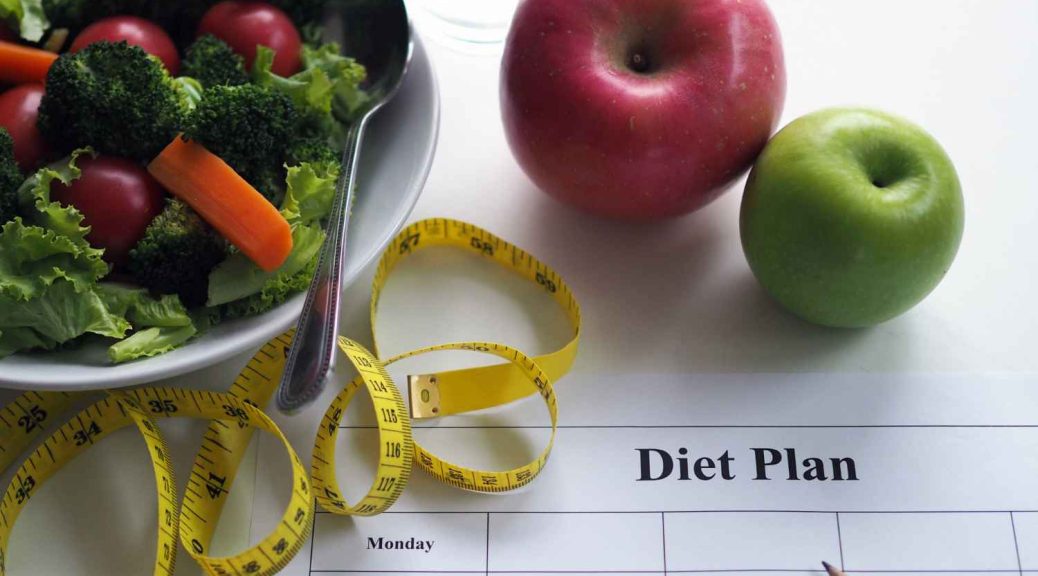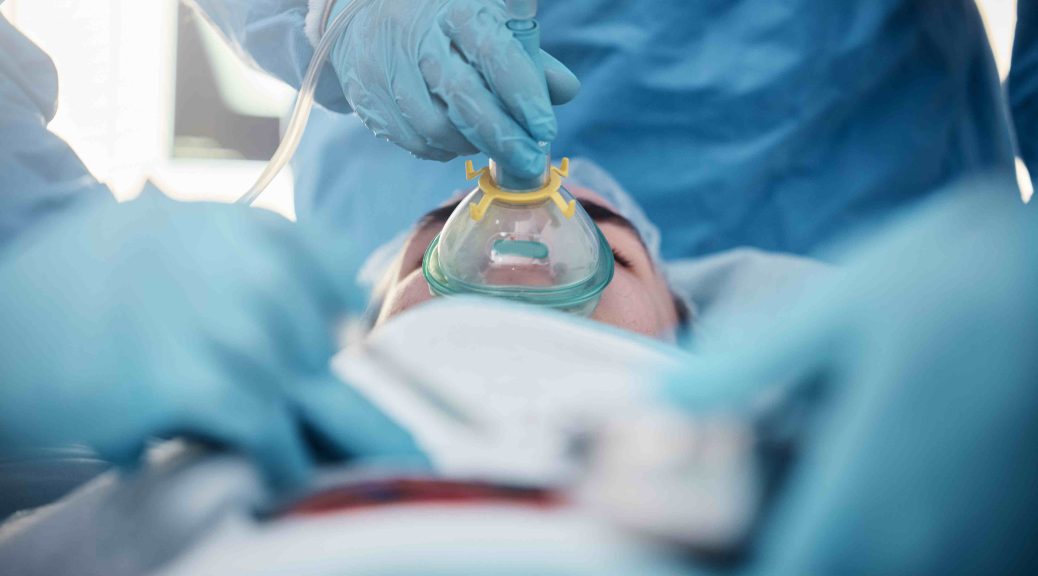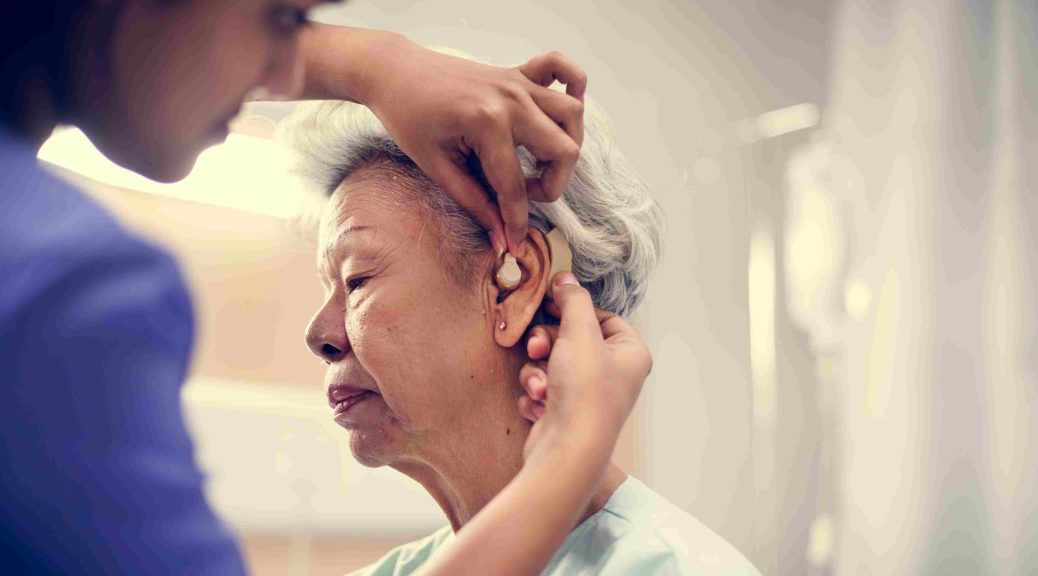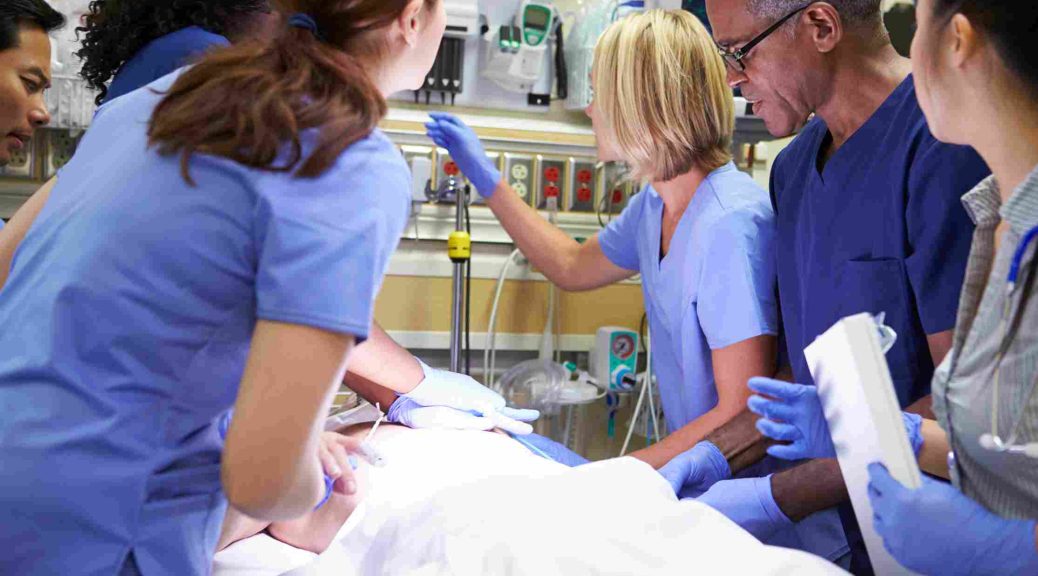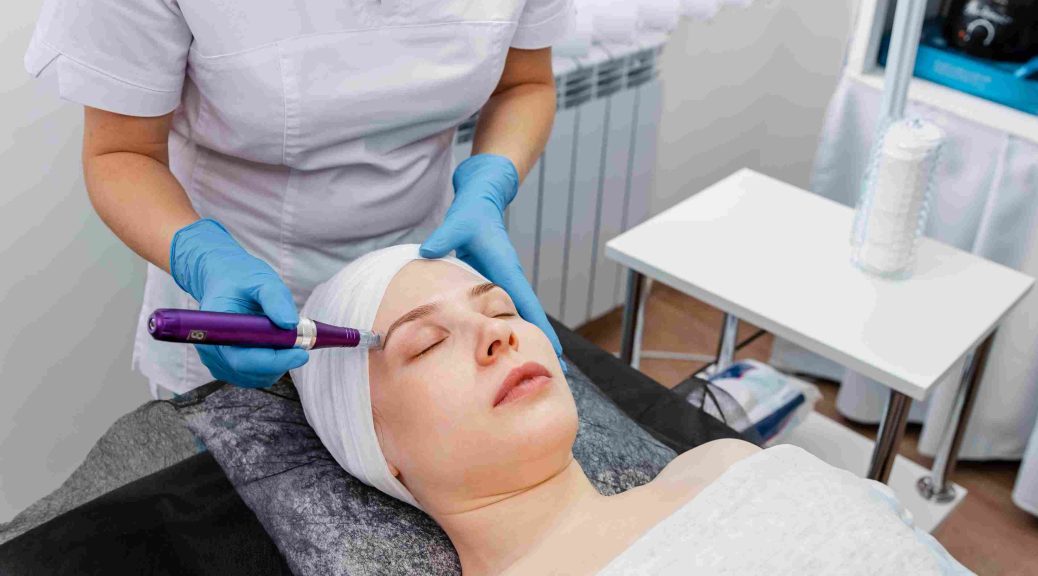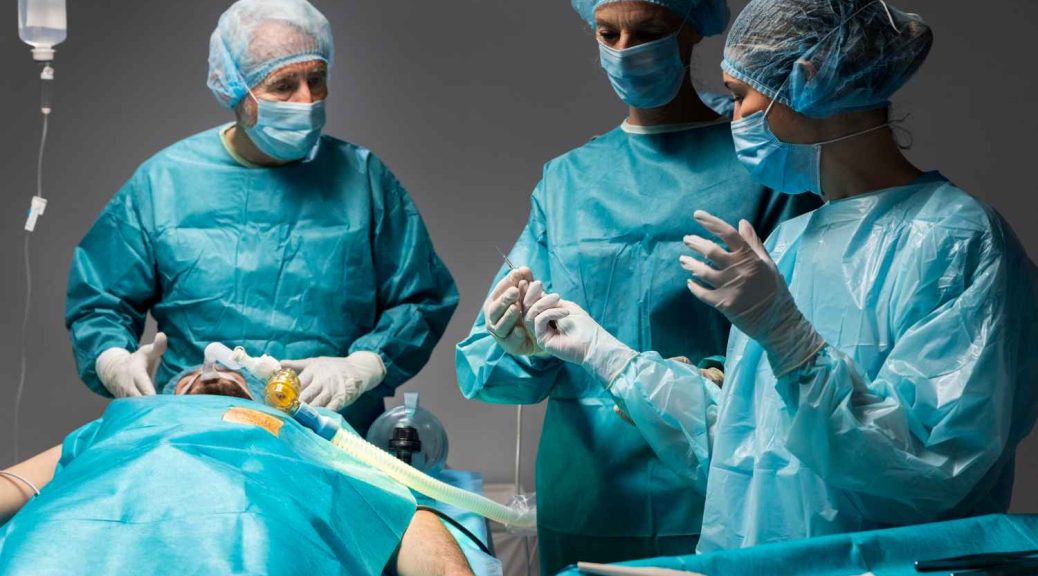7 Vital Signs You Should Visit an ENT Specialist
Your ear, nose, and throat which are collectively called ENT play a very important role in overall human health. All of these interconnected systems of the human body affect various sides of human life starting from hearing, breathing, and swallowing.
However, if any serious issue happens then you must seek guidance from the best ENT doctors in ILS Hospital Kolkata. In this blog, we will further explain 7 important factors for which you must visit an ENT specialist.
Understanding the Signs for Consulting an ENT
There might be numerous reasons why you must visit an ENT specialist and before making an appointment you should know the seven underlying factors first.
-
Long-lasting ear Pain Or Hearing Loss
If you are facing any type of ear internal pain or reduction in hearing then it might be a serious case of hearing loss.
It can happen due to numerous reasons like ear infections, perforations in the eardrums, or sensorineural hearing loss. A special evaluation will be done by an ENT specialist in this case to diagnose the issues properly.
Appropriate treatment options as per the conditions will be recommended afterward.
-
Chronic Sinus Issue
Problems of sinusitis or chronic sinus or nasal polyps can lead to nasal congestion, headache, and postnasal drip.
An ENT doctor will perform some tests based on nasal imaging studies, conduct nasal endoscopy and allergy testing to recognize the conditions of your sinus, and form a proper treatment plan to reduce the symptoms.
-
Difficulty in Breathing
Difficulty in breathing or swallowing can be a very serious issue that needs evaluation by a certified ENT. These types of problems might arise from some conditions like nasal obstruction, throat infections, or disorder in swallowing.
An ENT specialist can conduct diagnostic tests such as laryngoscopy and swallowing studies, to evaluate the airway and swallowing function. A proper diagnosis will be made in the multispeciality hospital in Kolkata and medication or treatment will be recommended further.
-
Recurring Sore Throats
Sore throats that recur often or problems in the tonsils can impact the quality of your life and might indicate the need for a more detailed evaluation by an ENT doctor. An ENT specialist can only assess your problem if you have chronic tonsillitis, strep throat infection, or any disorder in the immune system.
The doctor will check the throat health and recommend some medications like antibiotics which will also be available if you check for a 24*7 pharmacy near me on your mobile. On the other hand, if the problem is much more complicated then the doctor might conduct surgical removal of tonsils.
-
Dizziness in the Body
Ear helps in creating body balance and dizziness or balance problems can occur from inner ear disorders, vestibular migraines, or neurological conditions that affect the balance
An ENT specialist with proper experience in vestibular disorder can hold specialized tests to understand the cause of the symptoms that are happening. They might recommend appropriate strategies for proper management of the system.
-
Chronic Cough or Hoarse Voice
Chronic cough or hoarseness in the vocal cords can be symptoms of throat conditions such as vocal cord nodules or it might be throat cancer.
A doctor will perform a detailed evaluation of your vocal cords and the upper airway of the passage including laryngoscopy and voice evaluation to recognize the cause of your symptoms and develop a personal treatment plan for you.
-
Head and Neck Pain
Head and neck pain may be of different types. Prevalent head and neck pain like jaw pain, stiffness in the neck, or swollen nodes of the lymph. All of these issues like salivary gland infections or head and neck tumors may indicate ENT disorders and these are vital signs for which you must visit an ENT.
The doctor will perform an intensive evaluation by doing imaging studies or biopsies to understand the cause of the symptoms and provide treatment as needed.
Final Words
The right time to know when you must visit an ENT is very important for addressing diverse ear, nose, and throat conditions that can affect the quality of your life.
Whether you are experiencing persistent ear pain, problems in breathing, or any other relevant symptoms you must immediately make an appointment at the ILS Hospital considered one of the best emergency hospitals in Kolkata. You can consult with the best doctors to treat your issue and ensure your well-being here.
FAQs (Frequently Asked Questions)
In this section of the blog, we have tried to answer some of the relevant questions that have been asked by people all over
Q.1 How does an ENT doctor treat vertigo?
The doctor might conduct a physical examination followed by vestibular testing and imaging studies. Specific exercises or medications might be recommended by the doctor.
Q.2 Can cosmetic surgery be conducted by an ENT?
Yes, an ENT doctor can perform cosmetic surgery like rhinoplasty to reshape or reform the function of the nose if there is any problem or treat polyps.
Q.3 How does an ENT treat voice problems?
The doctor diagnoses the function of the vocal cords through some assessments like laryngoscopy. Afterward, treatment is done by including voice therapy or medications.
Q.4 What precautions must be followed after ear surgery?
After surgery, the patients must follow the instructions given by the doctor. They should care about the wound, maintain hygiene, and manage medications.
What You should Know Before Starting a Weight-loss Plan?
You’ve decided to start a weight-loss journey – fantastic! It’s a commitment that promises a healthier, happier you. But before diving headfirst into the latest fad diet, there are some crucial things to consider. Each individual’s body reacts differently to diet and exercise, making it important to find a tailored plan that suits your specific needs and goals.
Educate yourself on balanced nutrition by taking appointments with nutritionists or dietitians in Kolkata. Consulting with healthcare professionals can provide valuable insights and personalized guidance.
Remember, the goal is to improve overall health, not just to achieve a certain number on the scale. Prioritize long-term wellness over quick fixes, and you’ll be on the right path to a healthier, happier you. Let’s shed some light on key concepts to set yourself up for long-term success.
Top Tips to Know Before Start a Weight-Loss Plan
Each individual’s body reacts differently to diet and exercise, making it important to find a tailored plan that suits your needs and goals. Additionally, it’s essential to set realistic expectations and adopt a sustainable approach to avoid the pitfalls of crash dieting.
On this note, you can consult with a dietitian in ILS Hospital for your diet plan and health check-up.
1. Ditch the Diet Mentality, Embrace Lifestyle Changes
Think of weight loss as a marathon, not a sprint. Crash diets might offer quick results, but they’re rarely sustainable. Instead, focus on creating healthy habits you can stick with for life. This means incorporating nutritious foods you enjoy, finding physical activities you find fun, and getting enough sleep. It’s about progress, not perfection.
2. Realistic Goals and Sustainable Pace
Aiming to lose 1kg in a week is a recipe for disappointment. Healthy weight loss is gradual, typically around 1-2 kg per week. Setting smaller, achievable goals keeps you motivated and celebrates milestones. Remember, long-term weight management is the ultimate victory.
3. Focus on Nourishment, Not Deprivation
Diets that restrict entire food groups are often unsustainable and can lead to nutrient deficiencies. Aim to fill your plate with a variety of whole foods – fruits, vegetables, whole grains, and lean proteins. These foods are packed with nutrients that energize and satisfy you, reducing cravings for unhealthy options.
4. Make Friends with Protein and Fiber
Protein and fiber are the ultimate feel-good duo. Protein keeps you feeling fuller for longer, reducing between-meal snacking. Fiber helps regulate digestion and keeps you feeling satisfied. Include lean protein sources like chicken, fish, beans, and lentils in your meals, and don’t forget the fiber powerhouses – fruits, vegetables, and whole grains.
5. Befriend Water, Ditch Sugary Drinks
Sugary drinks are loaded with empty calories that contribute to weight gain. Water is your best friend – it keeps you hydrated, flushes out toxins, and can even help you feel fuller. Aim for eight glasses of water a day, and consider incorporating unsweetened tea or flavored water with fruits for a touch of variety.
6. Mindful Eating: Savor the Experience
In our fast-paced world, it’s easy to mindlessly munch while working or watching TV. Make mealtimes an opportunity to slow down, savor the flavors, and truly listen to your body’s hunger cues. Put down your phone, chew thoroughly, and stop eating when you’re comfortably full, not stuffed.
7. Move Your Body and Find Activities You Enjoy
Exercise doesn’t have to be a chore. Find physical activities you genuinely enjoy, whether it’s dancing, swimming, hiking, or team sports. The key is to find something you’ll stick with in the long run. Aim for at least 30 minutes of moderate-intensity exercise most days of the week.
8. Sleep for Success
When you’re sleep-deprived, your body produces more ghrelin (the hunger hormone) and less leptin (the satiety hormone), making you crave unhealthy foods. Aim for 7-8 hours of quality sleep each night for optimal health and weight management.
9. Listen to Your Body’s Signals
Our bodies are incredibly good at communicating our needs. Pay attention to hunger cues and avoid letting yourself get overly hungry, as this can lead to overeating. Similarly, recognize fullness cues and stop eating when you’re comfortably satisfied.
10. Don’t Go It Alone – Seek Support
A support system is invaluable on your weight-loss journey. Talk to your registered dietitian for personalized guidance. Consider joining a weight-loss group or finding a workout buddy to keep you accountable and motivated.
Final Words
Weight loss is a personal journey. There’s no one-size-fits-all approach. Be patient with yourself, celebrate your victories, and don’t be discouraged by setbacks.
Keep in touch with your dietitian and up to date with your current health status because it helps you to understand what your body requires to get a healthy body. Focus on creating healthy habits that nourish your body and mind, and you’ll be well on your way to a healthier, happier you!
What You Need to Know about Laparoscopic Surgery?
Laparoscopic surgery which is also known by the term minimally invasive surgery has completely changed the field of surgery with its advanced approach. By using this technique surgeons can perform different operational procedures through smaller surgical cuts, resulting in rapid recovery, much less pain, and minimum scar as compared with the traditional type of surgery.
If you are looking to consult with an experienced doctor then visit ILS Hospitals for laparoscopic surgeries in Salt Lake. In this comprehensive, we will guide you through the importance of laparoscopic surgery, its advantages, common procedures, and other factors.
Understanding Laparoscopic Surgery
Laparoscopic surgery is one of the types of most modern ways of operating as it includes the use of laparoscopy, in which there is a thin tube with a camera and light source.
Primarily a small cut is made in the required part of the body and then the tube is inserted. The camera transmits the original affected area for surgery and makes it visible to the doctors on a monitor.
Then as per requirement small operating equipment is inserted through the small cuts to perform the necessary procedure.
Benefits of Laparoscopic Surgery
There are numerous benefits of doing laparoscopic surgery which are discussed below:
-
Minimally Invasive
The laparoscopic surgery is one of the smarter types of surgeries which are minimally invasive. It also provides much less trauma and damage to the surrounding tissues. As a result, there is much less pain, or staying in the hospital becomes very less leading to faster recovery.
-
Minimal Scarring
While doing laparoscopic surgery, the doctors make smaller cuts to insert the equipment. As a result, there is very little scarring compared to traditional operational surgeries. Generally, this type of surgery is very ideal for the abdomen or pelvis.
-
Shorter duration in hospital
Patients who have been operated on by using laparoscopic surgery typically do not have to stay in hospitals for a longer period of time. In multispeciality hospitals in Kolkata some of the patients are discharged the day after the surgery.
-
Rapid recovery
The laparoscopic surgery by using minimal cuts takes a very short time period to heal. The patients can continue to do normal activities like working or exercising after the surgery as it heals faster.
-
Reduced complications
This type of surgery is associated with fewer complications like infection or bleeding. The smaller cuts reduce the exposure of the internal body organs to external contaminants or pollutants.
Common Laparoscopic Procedures
Laparoscopic surgeries can be used while performing various range of procedures with medical reference. They includes:
-
Cholecystectomy
This surgery is done to remove the gallbladder if there are gallstones or any other critical gallbladder conditions.
-
Appendectomy
This includes the removal of the appendix from the body if appendicitis happens.
-
Hernia Repair
When any organ or a tissue protrudes through a weak area in the wall of abdomen, then hernia operation is done.
-
Bariatric Surgery
For treating conditions like weight loss, obesity, or gastric conditions, this surgery is done.
-
Gynecologic Surgery
Removal of the uterus or the removal of the ovary is done with the help of this surgery.
Final Words
In this digital and modern era, laparoscopic surgery has been one of the most innovative developments which consists of smaller cuts, faster recovery, and much fewer complications.
However, the patient must take proper pre-operative and post-operative care to avoid risks.
ILS Hospitals in Kolkata is one of the leading hospitals for laparoscopic surgeries in Saltlake. Come and make an appointment today as we are committed to your health safety primarily.
FAQs (Frequently Asked Questions)
Here are some of the frequently asked questions that numerous people have asked over the internet.
Q.1 What Is The Most Complicated Laparoscopic Surgery?
The most complicated and hard laparoscopy surgery is the Laparoscopic cholecystectomy which is done by experienced surgeons.
Q.2 Do The Stitches After The Surgery Hurt?
Generally little bit of pain, sore abdomen, and cramps happen for some days which reduces after taking certain medications.
Q.3 Why 3 Holes Are Made For Doing This Surgery?
Three holes are made for inserting different operating equipment like retractors, graspers, scissors, or tools for dissection.
Q.4 Will I Have To Take Enough Bed Rest After The Surgery?
You do not need to stay in bed for 24 hours but taking rest frequently helps the surgery to heal faster.
Q.5 Can I Travel After The Surgery?
Yes, generally it takes two to three weeks for recovery and you can also fly after one to two days.
Pediatric Anesthesia Guide: Everything A Parent Should Know
Pediatric anesthesia is a medical process that is used when a child is going through a long surgical procedure. Now, you may ask what is an Anesthesia- it occurs to decrease the brain function in pain response while a patient goes through a surgical process. Anesthesia
Pediatric anesthesia is a specialized field of anesthesia that addresses the distinct requirements of child patients. Pediatric anesthesiologists are skilled in administering the appropriate dosage of anesthesia to infants and children, ensuring they undergo surgical procedures without experiencing pain or discomfort.
The specific needs of children make pediatric anesthesia more complex than standard anesthesia. Therefore, parents need to be informed about these differences to make well-informed decisions.
Common Types Of Anesthesia For Children
Various types of pediatric anesthesia are utilized by healthcare providers to cater to the specific needs of children. The choice of anesthesia is determined by factors like the child’s medical condition and the nature of the procedure.
- Local anesthesia: This type involves administering medication directly through injection near the surgical area. It’s commonly used for minor procedures to relieve pain in a specific body part without affecting the child’s consciousness.
- Regional anesthesia: Regional anesthesia numbs a larger area, such as an entire limb or the abdomen, by using nerve blockers injected near nerve clusters. It provides pain relief for the entire surgical site.
- General anesthesia: General anesthesia is employed to induce unconsciousness throughout the surgery. Children under general anesthesia are in a deep sleep state and are unable to feel pain or respond to stimuli.
Pediatric Anesthesiologist: What is the Role?
A pediatric anesthesiologist is a specialized medical professional trained to administer anesthesia to infants and children. Their expertise lies in ensuring that pediatric patients are comfortable and pain-free during medical procedures while prioritizing their safety. They are skilled in diagnosing any underlying health issues that may impact the anesthesia process and are adept at customizing anesthesia plans for each child.
Their knowledge encompasses airway management, drug response, alleviating anxiety, and closely monitoring the patient’s well-being throughout the procedure.
How to Prepare Your Child for Pediatric Anesthesiology?
Ensuring your child is ready for both anesthesia and surgery is crucial. As a parent, meeting with the pediatric anesthesiologist beforehand to address any health concerns and clarify doubts is important. When preparing your child for Pediatric Anesthesiology, it’s vital to explain inappropriate language and ensure they understand the doctor’s instructions regarding fasting and medication before the procedure. It’s also essential to answer their questions truthfully and fully without causing unnecessary fear.
What are the Common Pediatric Surgeries Requiring Anesthesia
Anesthesia is crucial for ensuring the safety and comfort of pediatric patients undergoing various surgical procedures. It helps manage pain and allows the medical team to perform necessary interventions without causing discomfort to the child. Below are some common pediatric surgeries that typically necessitate the administration of anesthesia.
- Appendicitis
- Intussusception
- Hepatobiliary
- Hydrocephalus
- Hernia repair
- Reconstructive urology
- Hypospadias repair
Choosing A Pediatric Anesthesiologist: Pediatricians in Salt Lake
Selecting a skilled pediatric anesthesiologist is crucial since they administer anesthesia to children. A competent pediatric anesthesiologist can cater to each child’s specific requirements, delivering optimal care based on factors like age, condition, and size. Here are several aspects to contemplate when picking a pediatric anesthesiologist.
On this note, if you are looking for an experienced and world-class pediatric anesthesiologist, you can visit ILS Hospital, Salt Lake for pediatricians in Salt Lake.
Final Words
Pediatric anesthesiology plays a crucial role in ensuring the comfort, safety, and well-being of children undergoing surgical procedures. Choosing a proficient pediatric anesthesiologist who can tailor anesthesia care to meet the unique needs of each child is paramount.
Their expertise in administering anesthesia and managing the perioperative period contributes significantly to positive surgical outcomes and minimizes potential risks. By prioritizing the selection of a skilled pediatric anesthesiologist, parents and caregivers can rest assured knowing that their child is in capable hands throughout the surgical experience.
FAQs(Frequently Asked Questions):-
Before going to visit Pediatricians in Salt Lake, let’s read on what are the common questions that you should know about Pediatric Anesthesiology.
Q1. What Is The Youngest Age For Anesthesia?
There is no minimum age requirement for anesthesia. Newborns and even premature babies can receive anesthesia if needed. However, there are some things to consider, especially for elective surgeries.
Recent research suggests that there may be a connection between repeated or lengthy anesthesia exposure in children under 3 and learning or behavioral problems.
Q2. Is Pediatric Anesthesia Safe?
Anesthesia is typically quite safe, and the majority of children experience no complications. Some studies suggest that administering general anesthesia or prolonged sedation to children under three years old might impact brain development.
However, recent findings offer reassurance, though long-term studies are ongoing to explore this further.
Q3. What is The Strongest Anesthesia?
General anesthesia is the strongest type of anesthesia, inducing unconsciousness in patients during surgical procedures. It’s usually delivered via a mask or intravenously and is employed for intricate, lengthy surgeries like hip replacements.
When you should Visit Audiology Hospital in Kolkata?
Loss of hearing is a very serious and common health concern affecting people’s lives.
It makes people feel isolated from the external world as they cannot make a transparent connection, unlike others. It might hurt the affected person’s life and make it harder to have social interactions.
Unfortunately, if you are having any kind of hearing problems then you must make an appointment for timely treatment at ILS Hospital Kolkata which is considered to be one of the best audiology hospitals in Kolkata. In this blog, we will explore the signs that indicate the best time to visit an audiology hospital in Kolkata.
Understanding The Factors of Hearing Loss
Nowadays hearing loss has become a very common factor among people and it has been a raised concern. To treat hearing loss problems you must first understand the factors associated with hearing loss including the signs and symptoms.
-
Recognizing signs of hearing loss
Hearing loss can happen due to numerous reasons and identifying it in the early stage is very necessary for treating it properly.
Some of the common symptoms of hearing loss include the complexity of understanding speech, asking for others to repeat their words, increasing the volume on the music box, and feeling any type of ringing in the internal parts of the ear which is also known as tinnitus.
Bring yourself or your loved ones for the best audiology treatment in Kolkata and seek guidance from an expert doctor in the multispeciality hospitals in Kolkata.
-
Routine Hearing Screenings
When you are facing any difficulties with your hearing then routine check-ups or routine hearing screenings are very important for maintaining overall hearing health.
This priority must be given to persons who are aged, have any kind of occupational exposure due to loud sounds, or have any medical issues. Audiologists at emergency hospitals in Kolkata can conduct intensive hearing assessments, including pure-tone audiometry, speech audiometry, and other screenings to recognize any deformities in the ear.
We suggest men above 40 and women above 35 have a screening to be done. By following this process one can manage their complex conditions easily.
-
Managing Tinnitus and Ear Disorders
Another problem that we have discussed is experiencing ringing in the ears also known as tinnitus.
Make an appointment immediately in the emergency hospital in Kolkata to avoid any kind of problems in the future. Seek advice from the audiologist in the hospital as they can assist you by providing counseling, sound therapy, and other tests to reduce the problem of tinnitus.
Moreover, audiology hospitals are well known for diagnosing and treating different conditions, such as otitis media, otosclerosis, and Meniere’s disease. In this case, the doctors provide intensive care to individual patients as per their condition.
-
Hearing Aid Assessment
For patients who are suffering from hearing loss, hearing aids are gadgets that are used which can be very transformative and restore the ability to communicate.
The audiologists at our hospital conduct a detailed assessment based on the medical history, lifestyle, and preferences. The doctors will provide a personal setting, programming, and counseling to make sure that the hearing aid properly works.
ILS Hospital being one of the topmost multispeciality hospitals in Kolkata provides high-end advanced technology for all ages.
Final Words
The first thing for individuals with hearing problems to manage optimal health and resolve complexities related to hearing loss or tinnitus is to know the correct time for medical visitation.
In this case, do not delay while we are always at your help. Come today and make an appointment at ILS Hospital Kolkata, as here expert staff are present to provide personalized solutions to enhance hearing health.
FAQs (Frequently Asked Questions)
In this section we have tried to jot down some of the often asked questions over the internet over time:
Q1. What are some common causes of hearing loss?
Numerous reasons lead toward hearing loss. Of them, aging is the main cause, another cause can be remaining for a long time in loud sound, or genetic factors can be also responsible.
Q2. How Can I Protect My Ears From Hearing Loss?
There are many solutions to reduce problems of hearing loss as you can protect your ears with the help of earplugs, and limit the timing of remaining in loud noises for timing.
Q3. How Often Should I Visit The Hospital For Screening?
For at least once a year everyone must schedule a hearing screening in a hospital.
Q4. Which Doctor must be Consulted for Hearing Problems?
Generally, ENT doctors can be consulted in this case. Specifically, doctors who treat ear problems are called audiologists.
Q5. What are the signs of Hearing Problems in Kids?
Kids might not express their problems so easily and for that reason, you can look for some factors like pain in the ears, the flow of any liquid, or problems while sleeping.
Which are the best hospitals in Kolkata for emergency care?
We are in such a world where life is unpredictable and it is hard to guarantee the longevity of your life as accidents or any serious health issues might happen in time.
So, the presence of the best emergency hospitals in Kolkata has become a necessity nowadays.
During times of crisis, emergency hospitals come to aid. In the hustle and bustle of Kolkata ILS Hospital in – Dum Dum, Howrah, and Salt Lake stands as a trademark for hope providing unmatched emergency services to patients.
Along with a steady commitment to excellence and a proper approach, ILS Hospital has been one of the preferred choices for emergency care patients.
Understanding the Emergency Services
-
Unmatched expertise
Our team consists of emergency care services with highly skilled and experienced professional staff.
Starting from emergency doctors and traumatic surgeons to critical care units and general physicians, individual members of the emergency care department have dedicated their work to giving compassionate and proper care.
Each of their heightened knowledge and expertise with advanced equipment and infrastructure ensures that the patients receive uplifted treatment regardless of their emergency situation.
-
Comprehensive Emergency Services
The emergency department of our healthcare organization is highly skilled in tackling any kind of medical emergency starting from any minor injuries to any life-threatening condition.
Our healthcare organization is also well known for being the emergency hospital for kids. Be it sudden chest pain, serious trauma from an accident, any crisis of medication, or a heart attack, patients can easily rely on us for intensive and comprehensive care.
The emergency services provided by the hospital are provided below:
- Highly advanced trauma care for seriously injured patients by doing a fast evaluation of the issue, stabilization, and surgical procedures.
- Emergency heart care, including diagnostic tests, assessment and procedure of heart catheterization for acute heart issues.
- Management of sudden stroke, by making timely administration of clot-busting medication and neuro-interventional processes to normalize blood flow to the brain.
- Respiratory help for patients from the pulmonology department with acute breathing complexities, including mechanical ventilation and non-invasive respiratory therapies.
- Emergency surgeries and diagnosis for conditions like appendicitis, problems in bowel movement, and traumatic injuries that need emergency operation.
- Gynecological emergencies include any kind of complicated type of pregnancy, child delivery, or gynae surgery.
- Emergency hospital for kids with acute illnesses, any kind of injuries, and medicinal emergencies, delivered by the special and experienced pediatric department.
- Intensive diagnostic services, consisting of advanced studies, laboratory tests, and proper diagnostics provide rapid and accurate treatment.
-
Patient-Centric Approaches
Satisfaction of the individuals and making sure that their well-being is our top priority. It is also the core factor of every healthcare service.
As soon as the individuals arrive at the emergency section of the hospital, they are welcomed with a sense of compassion, respect, and urgency. The staff members make sure they are comfortable enough and as per the doctor’s instructions, an assistant nurse is appointed to collect all medicinal history or any other data.
In case of emergency, the hospital is also well known for providing the best ambulance service in Kolkata. Clarified communication, empathy, and personalized observation are very important to our ethos, by gaining trust and confidence among the patients.
-
Highly advanced Facilities
The hospital is well renowned all over as being one of the top multispeciality hospitals in Kolkata.
Their emergency department has advanced and modern infrastructure, and observation rooms and is equipped with high-functioning medicinal equipment and devices for keen observation.
Moreover, the best thing about the hospital is its easy location. It is located in such a place that it is nearer to the majority of the transportation hubs which will make it easier to access emergency ambulance service.
Final Words
ILS Hospital in three locations in Kolkata, stands as a symbol of excellence if the case is an emergency. We are known to provide unmatched expertise, extensive services, and compassionate support to patients facing medical emergencies in the city.
So what have you been waiting for?
With a commitment to great excellence and proper approach, ILS Hospital being one of the best emergency hospitals in Kolkata continues to set the standard for emergency medical emergencies.
FAQs (Frequently Asked Questions)
Here in this section of the blog, we have attempted to answer all of the questions asked by the viewers all over
Q.1 Does the emergency hospital have EMI options?
We have multiple options for payment which Credit Card, Cheque, or Wire Transfer can do.
Q.2 How many beds does the hospital have in total?
The hospital in the DumDum branch has 155 beds and in the Howrah Branch, it has 85 beds.
Q.3 How quickly can I expect to receive emergency care at the hospital?
As soon as you reach ILS Hospital, the staff takes care of your condition by checking the basic requirements like blood pressure or temperature and then assigns a nurse to perform tests or the doctor makes a diagnosis.
Q.4 What are the emergency services in a hospital?
The emergency service of the hospital is dedicated to providing high-end services to patients who need urgent or emergency care including pre-hospital emergency services and emergency medicine.
Q.5 Why is emergency service important?
The emergency department is first and foremost needed for patients who are ill and their condition has become much critical and needs urgent medical attention.
Best Dermatology Hospital In Kolkata
Nowadays, people look for top-notch healthcare services for their numerous healthcare requirements. Among the list of hospitals in India, discovering a trusted healthcare institution specializing in the best dermatology treatment in Kolkata is very important.
The ILS Hospital is one of the renowned multispeciality hospitals in Kolkata identified as a beacon of excellence in dermatology treatment in Kolkata.
The hospital is located at four important locations – Agartala, Howrah, Dum Dum, and Salt Lake. In this detailed blog, we will dive deeper into the unique factors of ILS Hospitals that set it apart from any other hospitals for dermatological treatment.
A Brief Overview of the Multispeciality Hospital in Kolkata
Established to provide comprehensive and compassionate treatment to everyone, ILS Hospital has been well known as one of the leading healthcare providers in Kolkata.
The healthcare organization has a highly skilled group of dermatologists and an advanced infrastructure.
It is renowned nationally for providing one of the best dermatology treatments in Kolkata.
Starting from common dermatological problems to complicated skin issues the top multispeciality hospital is equipped with solutions to take care of the issues.
The Expertise of Dermatologists
At the core of the hospital’s dermatology department, there is a team of highly skilled and experienced skin doctors who bring their experience to the front of the patients.
Dr. Asha Rani Bhol in the Dum Dum branch of the hospital is one of the experienced dermatologists.
If you want to make an appointment at the Agartala branch then you can make a consultation with Dr. Subrata Kumar Das. With their quality knowledge and experience, these skin specialist doctors will meet the needs of patients.
High-Quality Infrastructure and Facilities
The hospital has one of the best infrastructure and facilities which play a very important role in delivering exceptional dermatology care.
The organisation is equipped with advanced diagnostic tools, digital imaging systems, dermoscopes, and equipment for skin biopsy.
Moreover, the modern procedure rooms and operation theaters are outfitted with very advanced and latest equipment making sure that the safety and comfort of the patients are going through proper dermatologic surgery and cosmetic surgeries.
A comprehensive range of services
Starting from proper and regular skin examinations to advanced dermatologic surgeries, ILS Hospital offers a comprehensive range of services that match the diverse needs of the patient.
Some of the important treatments provided by the dermatology department include:
- Diagnosis of acne, eczema, and psoriasis.
- Treatment of skin infections, allergies, and dermatitis.
- Skin surgeries for problems like skin cancer, moles, and other skin growth.
- Proper medicinal treatment to restore hair by therapy and hair transplant.
- Cosmetic dermatology treatment includes botox, fillers, and chemical peeling.
- Pediatric dermatology for small children with skin problems.
Patient-centric approaches
We keep in mind the safety of the patients and overall satisfaction.
From the time when the patients make an appointment and enter the hospital then they are warmly and compassionately greeted.
The staff of the hospital – dermatologists, nurses staff, and others go beyond to ensure the comfort and convenience of the patients.
Clarity in communication, personalized plans, and providing proper education to the patients are some of the important approaches of the hospital.
Final words
We are trying to set the status for being the best dermatologist hospital in Kolkata, by providing high-quality expertise, high-end technology, and facilities.
Whether you are thinking of consulting a skin doctor for a complicated skin disorder or any kind of hair or nail problem, ILS Hospital is one of the best dermatologist hospitals in India.
So do not delay if you have any complex skin or hair disorders and make a quick consultation with the best dermatologists of our own.
FAQs (Frequently Asked Questions)
Here we have answered some of the most frequently asked relevant questions by the readers:
Q.1 When should you consult a dermatologist?
If any kind of skin disorder seems to emerge on your skin like acne, eczema, psoriasis, or skin cancer, then you must immediately make a consultation with a dermatologist. Even if you are having any kind of hair problems like hair loss or any skin dark spots and wrinkles then you should consult skin doctors.
Q.2 Which age is ideal for visiting a dermatologist?
By the age of 25 one must start visiting a dermatologist as this is considered to be the perfect age to diagnose any kind of problems very early.
Q.3 What happens when you first visit a dermatologist?
When you first go to the dermatologist, a full body head-to-toe skin examination is executed by the doctor to diagnose if there is any problem.
Q.4 Which doctor can cure dandruff?
As Dandruff is a serious and irritating issue, it is only cured by a board-certified and highly experienced dermatologist.
Q.5 What is dandruff called in dermatology?
Dandruff is called Pityriasis capitis which is an inflammatory form of dermatitis with increased scaling in the scalp.
Some Tips to Care for New Born Baby in Summer
Every parent has the same question about how to take care of their newborn baby in Summer. Summer is not easy anymore to take care of a newborn baby, especially at this hot temperature. Every season has a distinct impact on a child’s health. Summer brings heat and warm weather.
New parents are always anxious to find the best pediatricians. If you are living in Dum Dum and looking for the nearest pediatric hospital in Kolkata, visit ILS Hospital for child specialist Dum Dum and make an appointment with an experienced child specialist.
In this blog, we share a few significant facts that you need to know as a new parent. So read on!
Top Common Summer health Problems and Prevention
As a first-time mother, being vigilant and proactive about your baby’s health during the summer is crucial. Keep reading to learn about common summer health issues in infants and how to prevent and treat them.
In this season, new parents must wonder how to keep their baby cool and comfortable in the hot summer. However, it can be said that daily checkups are important to protect your child when the weather changes.
Most parents have the same concerns, like what type of food they need to feed their baby or how to avoid the common summer illness. In the following part, we mentioned five common summer illnesses and a few tips to prevent them from affecting your baby. On this note, you should visit child specialist Dum Dum for doctor guidance for your baby.
-
Dehydration
During the summer, dehydration is a prevalent health issue for infants. Babies are particularly susceptible because their higher surface area to volume ratio causes them to lose fluids faster than adults. The increased sweating due to hot weather exacerbates this fluid and electrolyte loss.
Symptoms of dehydration in infants include a dry mouth, reduced number of wet diapers, lethargy, and a sunken fontanelle.
Tips to Prevent It:
Try to make your baby hydrated by feeding them breast milk. However, you can take appointment as a child specialist from mother and child care hospital Dum Dum, to get guidance on how often you should feed breast milk to hydrate your child.
-
Fungal Infection
Fungal infections in children are relatively common and can affect various parts of the body, including the skin, scalp, nails, and mucous membranes. These infections are usually caused by dermatophytes, yeasts, or molds, with ringworm (tinea), athlete’s foot, and candidiasis being among the most frequent types.
Symptoms vary depending on the infection’s location but often include redness, itching, scaling, and in some cases, painful lesions or blisters.
Tips to Prevent It:
To prevent fungal infections in children, maintaining good hygiene is essential. Keep your children indoors during hot and humid weather, as sweating can exacerbate fungal infections.
It’s important to avoid sharing towels or clothes with others to reduce the risk of spreading infections. Ensure that your children wear clean clothes, especially undergarments, to keep their skin dry and free from harmful fungi. However, to get proper treatment, pediatricians in Dum Dum will give you the best suggestions that help you to protect your baby from fungal infection.
-
Sunburn
Sunburn can cause significant discomfort and pain for babies. Their delicate and sensitive skin is highly susceptible to sunburn, which can develop within just a few minutes of sun exposure. Symptoms of sunburn in infants include redness, pain, and blistering.
Protect your baby from direct sunlight, particularly between 10 a.m. and 4 p.m. when the sun is most intense. Dress them in light, long-sleeved clothes and a wide-brimmed hat to shield their face and neck. Apply sunscreen with a minimum SPF of 30 on any exposed skin.
Tips to Prevent It:
The sun is strongest between 10 a.m. and 2 p.m., so it’s best to avoid taking your baby outside during these hours. If you must go out, take all necessary precautions. A baby’s skin is very sensitive to sunlight. Make sure your baby is well covered if you go out, especially around noon. Dress them in light-colored, long-sleeved shirts and pants, and consider carrying an umbrella for extra protection.
-
Insect Bites and Stings
Summer is a peak time for insect activity. Babies are prime targets for bites and stings. These can lead to symptoms like redness, swelling, pain, and itching. Dress your baby in long-sleeved clothing and cover their stroller with mosquito nets.
Avoid areas with high insect activity. Use insect repellent specifically made for infants, and follow the instructions carefully.
Tips to Prevent It
Dress your baby in long-sleeved clothing and cover their stroller with mosquito nets. Avoid areas with high insect activity. Use insect repellent specifically made for infants, and follow the instructions carefully.
Final Words
In summer, ensure your newborn stays cool and safe by keeping them out of direct sunlight, especially during peak hours. Dress them in lightweight, long-sleeved clothing and use SPF 30 sunscreen on exposed skin.
Protect against insects with nets and infant-safe repellent. Keep them hydrated and monitor for signs of overheating to ensure their comfort and well-being. Don’t forget to make an appointment with a child specialist Dum Dum, if you are living in Kolkata. Doctor suggestions and prescriptions are important for proper treatment.
FAQs(Frequently Asked Questions):-
Here are the most asked questions about the same matter by parents. In the following part, we answer those common questions. So, read on!
Q1. How To Manage A Newborn Baby In Summer?
The most common question among parents. Well, Keep your newborn cool, avoid peak sun hours, dress in light clothing, use doctor-prescribed sunscreen, and infant-safe repellent, and ensure adequate hydration.
Q2. How To Take Care Of Newborn Baby Skin In Summer?
Here are the effective tips for your baby’s skin treatment
- Avoid oil messages.
- Keep your baby hydrated.
- Keep your baby cool by wearing cotton clothes.
- Follow bath tips according to a child specialist.
Q3. Do Newborns Get Hot In Summer?
In hot weather, babies and young children risk overheating. Offer your baby extra breastfeeds or bottle feeds. Dress them comfortably in loose clothing to keep them cool.
Pediatric Anesthesia Guide: Everything A Parent Should Know
Pediatric anesthesia is a medical process that is used when a child is going through a long surgical procedure. Now, you may ask what is an Anesthesia- it occurs to decrease the brain function in pain response while a patient goes through a surgical process. Anesthesia
Pediatric anesthesia is a specialized field of anesthesia that addresses the distinct requirements of child patients. Pediatric anesthesiologists are skilled in administering the appropriate dosage of anesthesia to infants and children, ensuring they undergo surgical procedures without experiencing pain or discomfort.
The specific needs of children make pediatric anesthesia more complex than standard anesthesia. Therefore, parents need to be informed about these differences to make well-informed decisions.
Common Types Of Anesthesia For Children
Various types of pediatric anesthesia are utilized by healthcare providers to cater to the specific needs of children. The choice of anesthesia is determined by factors like the child’s medical condition and the nature of the procedure.
- Local anesthesia: This type involves administering medication directly through injection near the surgical area. It’s commonly used for minor procedures to relieve pain in a specific body part without affecting the child’s consciousness.
- Regional anesthesia: Regional anesthesia numbs a larger area, such as an entire limb or the abdomen, by using nerve blockers injected near nerve clusters. It provides pain relief for the entire surgical site.
- General anesthesia: General anesthesia is employed to induce unconsciousness throughout the surgery. Children under general anesthesia are in a deep sleep state and are unable to feel pain or respond to stimuli.
Pediatric Anesthesiologist: What is the Role?
A pediatric anesthesiologist is a specialized medical professional trained to administer anesthesia to infants and children. Their expertise lies in ensuring that pediatric patients are comfortable and pain-free during medical procedures while prioritizing their safety. They are skilled in diagnosing any underlying health issues that may impact the anesthesia process and are adept at customizing anesthesia plans for each child.
Their knowledge encompasses airway management, drug response, alleviating anxiety, and closely monitoring the patient’s well-being throughout the procedure.
How to Prepare Your Child for Pediatric Anesthesiology?
Ensuring your child is ready for both anesthesia and surgery is crucial. As a parent, meeting with the pediatric anesthesiologist beforehand to address any health concerns and clarify doubts is important. When preparing your child for Pediatric Anesthesiology, it’s vital to explain inappropriate language and ensure they understand the doctor’s instructions regarding fasting and medication before the procedure. It’s also essential to answer their questions truthfully and fully without causing unnecessary fear.
What are the Common Pediatric Surgeries Requiring Anesthesia
Anesthesia is crucial for ensuring the safety and comfort of pediatric patients undergoing various surgical procedures. It helps manage pain and allows the medical team to perform necessary interventions without causing discomfort to the child. Below are some common pediatric surgeries that typically necessitate the administration of anesthesia.
- Appendicitis
- Intussusception
- Hepatobiliary
- Hydrocephalus
- Hernia repair
- Reconstructive urology
- Hypospadias repair
Choosing A Pediatric Anesthesiologist: Pediatricians in Salt Lake
Selecting a skilled pediatric anesthesiologist is crucial since they administer anesthesia to children. A competent pediatric anesthesiologist can cater to each child’s specific requirements, delivering optimal care based on factors like age, condition, and size. Here are several aspects to contemplate when picking a pediatric anesthesiologist.
On this note, if you are looking for an experienced and world-class pediatric anesthesiologist, you can visit ILS Hospital, Salt Lake for pediatricians in Salt Lake.
Final Words
Pediatric anesthesiology plays a crucial role in ensuring the comfort, safety, and well-being of children undergoing surgical procedures. Choosing a proficient pediatric anesthesiologist who can tailor anesthesia care to meet the unique needs of each child is paramount.
Their expertise in administering anesthesia and managing the perioperative period contributes significantly to positive surgical outcomes and minimizes potential risks. By prioritizing the selection of a skilled pediatric anesthesiologist, parents and caregivers can rest assured knowing that their child is in capable hands throughout the surgical experience.
FAQs(Frequently Asked Questions):-
Before going to visit Pediatricians in Salt Lake, let’s read on what are the common questions that you should know about Pediatric Anesthesiology.
Q1. What Is The Youngest Age For Anesthesia?
There is no minimum age requirement for anesthesia. Newborns and even premature babies can receive anesthesia if needed. However, there are some things to consider, especially for elective surgeries.
Recent research suggests that there may be a connection between repeated or lengthy anesthesia exposure in children under 3 and learning or behavioral problems.
Q2. Is Pediatric Anesthesia Safe?
Anesthesia is typically quite safe, and the majority of children experience no complications. Some studies suggest that administering general anesthesia or prolonged sedation to children under three years old might impact brain development.
However, recent findings offer reassurance, though long-term studies are ongoing to explore this further.
Q3. What is The Strongest Anesthesia?
General anesthesia is the strongest type of anesthesia, inducing unconsciousness in patients during surgical procedures. It’s usually delivered via a mask or intravenously and is employed for intricate, lengthy surgeries like hip replacements.
How Long Does It Take to Recover from Gallbladder Stone Surgery?
The gallbladder is a small, pear-shaped organ located just beneath the liver in your upper right abdomen. Its main function is to store and concentrate bile, a yellowish-green fluid produced by the liver. Bile helps break down fats in the small intestine during digestion .
People look for the best hospital to get the best healthcare service & suggestions. On this note, if you are living in Tripura or Bangladesh, and want to get the best gallbladder surgery treatment at the nearest location, you can reach out to ILS Hospital, Agartala. For gallbladder stone surgery in Agartala, ILS Hospital is the best hospital in Agartala where you will get world class treatment and care.
What is Gallbladder Stone Surgery?
Gallbladder removal, also known as cholecystectomy, is a surgical procedure undertaken through one of two primary methods:
- Laparoscopic surgery: This is the more common approach, where a surgeon utilizes a slender tube equipped with a light and a miniature camera (laparoscope) to visualize the body’s interior. Several small incisions are made, using the laparoscope and specialized tools to conduct the surgery.
- Open surgery: Reserved for cases where laparoscopic surgery isn’t feasible, typically due to severe infection or scarring of the gallbladder and bile ducts, obesity, advanced gallbladder disease, or pregnancy in the final trimester. In this method, a larger incision is made in the abdominal region to access and remove the gallbladder directly. Both procedures are carried out under general anesthesia.
Why is Gallbladder Removal Surgery Performed?
This is the most common question that people have asked. Why is gallbladder removal surgery performed? The answer is to remove gallstone that builds in the gallbladder.
The primary reason for undergoing gallbladder removal surgery is to address the presence of gallstones within the gallbladder. While gallstones may not always cause immediate issues, surgery becomes necessary if a stone obstructs a bile duct, causing a painful “gallbladder attack” characterized by intense abdominal pain lasting for several hours. For this situation, you can visit ILS Hospital for best emergency hospital in Agartala.
Gallstones typically don’t disappear without intervention. While medications can be attempted initially, they often take a significant amount of time, ranging from months to years, to dissolve the stones, and recurrence of gallstones is common.
In certain instances, gallstones may obstruct bile ducts, leading to symptoms such as pain, inflammation, nausea, and vomiting. Severe complications can arise, including jaundice (yellowing of the skin and eyes), gallbladder infection, cholecystitis (inflammation of the gallbladder), cholangitis (inflammation of the bile ducts), gallbladder tears (potentially fatal), and pancreatitis.
How Long Take to Recover from Gallbladder Surgery?
The recovery process varies depending on whether laparoscopic or open surgery is undertaken.
For laparoscopic surgery, patients often discharged the same day or require an overnight stay. Rest is recommended, with avoidance of strenuous activities like sports, heavy lifting, and swimming for at least a week. Typically, patients can return to their routine within two weeks.
In the case of open surgery, hospitalization typically lasts 1 to 2 days. After discharge, patients are advised to refrain from sports, heavy lifting, and swimming for several weeks. Complete recovery may take 6 to 8 weeks.
Gallbladder Stone Surgery: The Risk Factor
Gallbladder stone surgery, while often necessary to alleviate symptoms and prevent complications, carries inherent risks like any surgical procedure. Among the primary risks associated with gallbladder stone surgery are anesthesia complications, infection, bleeding, injury to nearby organs or structures, and bile duct injury.
Anesthesia complications may include adverse reactions or respiratory issues, especially in patients with preexisting conditions. Infections can occur at the surgical site or internally, leading to complications such as abscess formation. Bleeding during or after surgery is a potential risk, especially in patients on blood-thinning medications or with clotting disorders.
Injury to nearby organs, such as the bile duct, liver, or intestines, can occur during surgery, leading to additional surgical interventions or long-term complications. Bile duct injuries, in particular, can result in bile leakage, infection, or obstruction, necessitating further treatment.
Furthermore, postoperative complications such as blood clots, pneumonia, or gastrointestinal issues may arise, prolonging recovery and potentially requiring additional medical attention.
Final Words
With advancements in surgical techniques and perioperative care, the procedure has become safer and more effective, offering relief from debilitating symptoms and preventing potentially serious complications.
However, it’s imperative for patients to understand the risks, benefits, and alternatives, and to engage in thorough discussions with their surgeon. With proper preoperative evaluation, careful surgical planning, and proper postoperative care, gallbladder stone surgery can significantly enhance quality of life and promote long-term well-being for individuals facing gallstone-related challenges.
Frequently Asked Questions(FAQs):-
Here we have answered some of the most frequently asked questions about gallbladder surgery. Please take a look at the below part to know more about it.
Q1. Is Gallbladder Stone A Major Surgery?
Yes, gallbladder stone surgery, whether performed laparoscopically or through open surgery, is considered a major medical procedure due to its complexity and potential risks.
Q2. Why 4 Holes For Gallbladder Surgery?
Four holes are typically used in laparoscopic gallbladder surgery to accommodate instruments, provide optimal visualization, and minimize postoperative discomfort and scarring.
Q3. How Long Is Bed Rest After Gallbladder Surgery?
It depends on the patients and their conditions. However, it can be said that it takes 2 weeks to get bed rest after gallbladder surgery.












